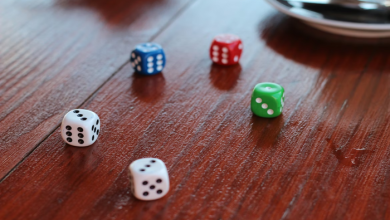
The fundamental idea behind strategic betting is always probability, whether you’re figuring out odds for a sporting event or looking at Serie A predictions for your preferred football team. These similar probability ideas are used by casinos to keep a steady profit. The house edge, a well-calibrated process that guarantees the casino, commonly known as “the house,” always has a long-term advantage, is how they accomplish this. However, how does the house edge operate, and why is it so important to casinos’ bottom lines? In this lengthy in-depth analysis, we will dissect the house edge’s characteristics, clarify the function of chance and statistics in gambling, point out the different tactics casinos employ to increase revenues, and provide advice on how players might reduce their losses.
Comprehending the House Edge
Every casino game, from the spinning wheels of slot machines to the green-felt tables of roulette and blackjack, revolves around the concept of the house edge. It’s the math that keeps casinos profitable. This holds true no matter how many players there are or how often some players win in the short term.
Determining the Edge of the House
The house edge is essentially an inherent margin that provides the casino with a consistent, predictable long-term edge over players. Every casino game has a different set of rewards, odds, and rules. These factors contribute to the amount of each bet that the casino expects to keep as profit from many individual wagers. The casino aims to earn $5 for every $100 bet. For instance, a slot machine with a 95% return to player (RTP) illustrates this. This suggests a 5% house margin.
Variability comes into play because this cushion does not ensure that the casino will win every single wager. Players can have lucky streaks, but the house edge usually favors the casino. This happens over a large number of bets. The foundation of the game industry is this mathematical inevitability.
Examples of the House Edge in the Real World
Let’s look at a few popular games and their usual house edges:
- European Roulette: ~2.7% (one zero on the wheel)
- American Roulette: ~5.26% (two zeros on the wheel)
- Blackjack: ~0.5% (if you follow optimal basic strategy)
- Baccarat (Banker Bet): ~1.06%
- Craps (Pass Line Bet): ~1.41%
- Slot Machines: ~2% to 10% (or even higher, depending on the machine)
Take note of the variations in these percentages. If you play blackjack poorly, the house edge may increase to more than 2% or 3%. Selecting the American form of roulette increases your deficit over the European version. The house edge is a constant, though, regardless of the game. Casinos depend on many bets to ensure their edge. Some players might win big, but overall, the odds favor the house.
Variance, Statistics, and Probability
How Casino Profit Is Calculated
To keep the games balanced for the house, we carefully calculate various probabilities behind every flashing light and loud jackpot alert. To create the pay tables and odds that preserve the house edge, casinos employ statisticians and mathematicians, also known as gaming mathematicians or gaming analysts.
Expected value (EV) is the average amount a casino or player expects to win or lose on a bet. This concept is important because it helps predict outcomes over many wagers. A straightforward formula is used to compute it:
For instance, in American roulette, a straight wager on a single number pays 35 to 1. But 38 spots are available (numbers 1–36 plus 0 and 00). Just 1 out of 38, or roughly 2.63%, is your chance of landing a single number. Even though the payout is substantial, the EV is still negative over a large number of spins. The house continuously makes money when you multiply this minor drawback by millions of spins over time.
Luck in the Short Term vs. Long Term The truth
Because of variance, some patrons leave casinos with significantly more money than they began with. It also explains why some people quickly deplete their cash. Randomness can diverge significantly from the expected mean in the short term. You could score a few slot machine jackpots nearly consecutively or win ten consecutive blackjack hands.
The more you play, though, the more your victories and losses ought to match the anticipated results of the game. For this reason, casinos promote prolonged play. They are aware that each new wager brings the total outcomes closer to the house edge.
Strategies for Casino Revenue That Go Beyond the House Edge
Indeed, the foundation of a profitable casino is the house edge. However, how precisely can casinos take use of it to ensure that gamers continue to wager? They use rewards, change the environment, and apply psychological ideas. These are their best strategies.
Motivating Extended Playback
Casinos are designed to be engaging. You lose track of time because they decrease windows and take away clocks. Free drinks, regular player promos, and even lavish stage productions are provided. The concept is straightforward: you’re more likely to keep playing if you feel more at ease. Additionally, the house edge is more likely to take a toll the longer you play.
Rewards & Freebies for Loyalty
Casinos also have players clubs or loyalty programs. These programs let clients earn points. Players can redeem these points for cash back, free meals, or hotel stays. These incentives do not significantly lessen the casino’s margins when looking at the gains from player losses.
VIP Areas and High Rollers
Players that risk large sums of money in a single session are known as high rollers, or “whales.” Casinos treat them well. They offer exclusive gaming areas, luxurious suites, and special facilities. Even a small house edge can mean a lot for big bets. So, these high rollers often generate significant profits for the casino, despite the lavish perks.
Your Greatest Asset is Knowledge
Anyone entering a casino needs to be aware of the house edge. Even while a single session’s result can be influenced by chance, the inherent advantage nearly always wins out in the long run. Casinos are aware of this and profit from players who keep betting despite not completely understanding the odds.
All in all, you can have more fun and risk less money by choosing games with a lower edge. Also, use good bankroll management and some smart strategies. Remember, gambling isn’t a guaranteed way to make money. It’s meant for fun. Above important, enter casinos with a calm head, respect for the logic involved in the games, and defined limitations.




